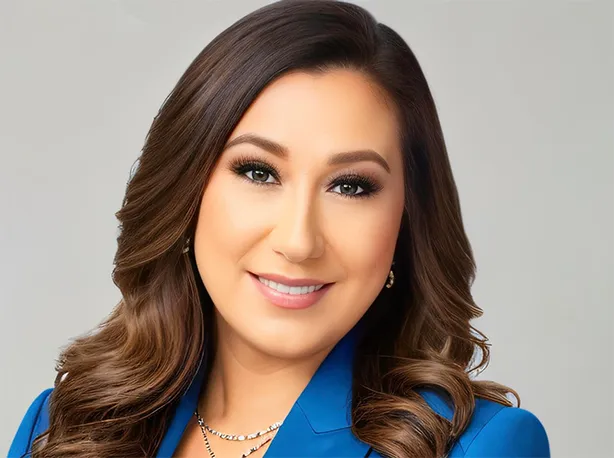The escrow process, also known as closing, is one of the most complicated pieces of real estate puzzle because there are several moving parts and quite a bit of paperwork to get in order. The process begins once seller signs the purchase agreement and ends when the buyer gets the keys to their new home. Escrow ensures that the entire process runs smoothly from start to finish.
You’ve probably heard the word escrow used in phrases such as “the house fell out of escrow”, or “we’re waiting for escrow to close.” So the first question is, what is an escrow?
What is escrow?
Simply stated, escrow is the involvement of an impartial third party in a real estate transaction. This neutral third party acts as an intermediary between the buyer and seller, and also collects and remits funds as instructed. Buyer’s funds are deposited with the escrow company, which then remits to the seller on the buyer’s behalf.
The escrow is essentially an independent neutral account and the vehicle by which the mutual instructions of all parties are complied with. The basic concept is to ensure that both the buyer and the seller are protected during any real property transaction.
How does the escrow process work?
The escrow is a depository for all monies, instructions, and documents necessary for the purchase of your home. These include your funds for down payment, your lender’s funds, and documents for the new loan. Generally, the Buyer deposits a down payment with the Escrow Holder, and the Seller deposits the deed and any other necessary papers with the Escrow Holder. Prior to close of escrow, the Buyer deposits the funds required and agreed upon by the parties to the sale with the Escrow Holder. The buyer instructs the Escrow Holder to deliver monies to the Seller when the Escrow Holder:
- Records the deed, and
- Delivers to the Buyer a policy of title insurance which shows title to the property vested in the name of the Buyer.
The Escrow Holder is authorized to deliver the deed to the buyer when the Buyer has deposited the agreed-upon purchase price and fulfilled any other conditions specified in the escrow instructions. The Escrow Holder handles the prorations and adjustments on any fire/hazard insurance, real estate taxes, rents, interest, etc., based on the escrow instructions of both parties.
The Escrow Holder thus acts for both parties and protects the interests of each within the authority of the escrow instructions. Escrow cannot be completed until the instructions have been satisfied and all parties have signed escrow documents. The Escrow Holder takes the instructions based on the terms of the Purchase Agreement and the Lender’s requirements.
What does an escrow company do for me?
Not only is “escrow” the concept of a third party receiving and disbursing funds, but it also includes other valuable transaction services. In order to facilitate the transfer of property from one owner to another, the best escrow companies will:
- Prepare, review and/or revise escrow instructions.
- Determine the legal ownership and status of the property through a “title search”.
- Request a beneficiary’s statement if a debt is to be assumed by the buyer.
- Confirm that the buyer is “qualified” and meets the lender’s requirements.
- Confirm property meets requirements imposed by the lender and/or buyer.
- Prorate all related financial matters (e.g., taxes, insurance) involved in the ownership transfer.
- Ensure all legal documentation is complete, including recording deed.
- Comply with time limits imposed in instructions.
- “Close” escrow when all instructions (buyers, seller’s and lender’s) have been fulfilled.
- Disburse funds as instructed, including all related fees (title fees, commissions, if any, payoffs, etc.).
- Prepare final statement for all concerned parties.
Protecting your interests
Escrows in California are performed by banks, savings & loans and title companies as well as independent escrow firms which are licensed by the state of California, and their records are open to inspection by the Corporation Commissioner. In addition, escrow companies furnish the state with annual audits of their books, and all escrow funds must be kept in trust accounts. Thus, the state helps ensure that escrow companies are properly managed and truly act as impartial parties to any real property transaction.
Escrow companies are generally held liable if any instructions are violated during the course of an escrow. No changes may be made to any escrow instructions if changing them would be detrimental to any party involved. It is possible to change instructions once a property has “entered escrow,” however, but only by mutual agreement. Finally, all escrows have clearly defined time limits. If, for some reason, all instructions cannot be carried out by the end of the time limit, all parities involved are entitled to the return of documents, fees, funds and other related materials. They also may mutually agree to extend the time period by changing the instructions.
The term “escrow” has come to mean “neutral protection” for the seller, the lender and the buyer. All parties involved in the transfer of real property are impartially protected during the transaction, and are serviced by professionals intent on ensuring a smooth, trouble-free sale. Look for an escrow company that clearly defines its services, and which lists all fees and charges “up front”.
Escrow is an indispensable necessity in today’s marketplace. If you need further explanations during the process, always consult your escrow officer. The escrow company is, indeed, a neutral third party, and its job is to make sure all sale conditions are met quickly and efficiently.
Choosing your escrow company
Ideally, you should ask your real estate agent to recommend two or three different escrow companies – then you would choose. If you don’t have an agent, you’ll find escrow companies listed online or in the yellow pages under either Real Estate Escrow or Real Estate Title Insurance.
In most cases, escrow companies work together with title insurance companies so you can kill two birds with one stone by selecting both the escrow and title insurance company at the same time.
Working with a First Team makes the escrow process a breeze. The First Team family of companies includes Western Resources Title company, as well as two different escrow companies: Coast Cities Escrow and Hallmark Escrow Co. We’ve been working together for decades so you can take advantage of our well oiled machine.
If you are going to be entering the real estate market, work with a First Team agent. You can find an area specialist online in your Southern California real estate market.




.jpg)
.jpg)



